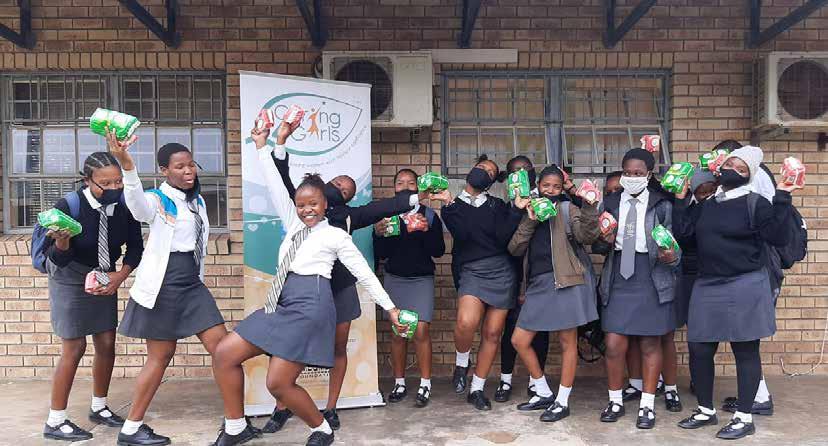THE SUSTAINABILITY ISSUE | 2021
RESPONSIBLE MINING
SBPM initiatives to empower communities Siyanda Bakgatla Platinum Mine (SBPM) is a rapidly growing, nonlisted, black-owned emerging platinum group metal mining and processing business. The company’s sustainable development strategic focus area for the 2021 financial year has clear safety, health and environment (SHE) as well as social performance (SP) objectives. SBPM has various sustainability initiatives to benefit host communities
S
BPM leadership has set SHE and well as SP initiatives and targets that need to be achieved in the financial year. SBPM’s Social Performance Department manages all its socio-economic development programmes. SHE initiatives and targets: • empower the team supervisors – recognise and empower the supervisors to reduce injuries and ensure compliance to our standards framework • automate reporting to receive real-time underground performance data. Social performance initiatives: • to have highly functional community engagement forums • stakeholder relationship base • expedite the implementation of the agreed SBPM social and labour plan (SLP) initiatives • for sustainable local economic development (LED), SBPM aims to further implement the planned community-based enterprise development (ed) programme projects • to ensure SBPM has an informed SLP submission. Valuing social and relationship capital One of the main objectives of the SLP is to ensure that mining uplifts the socio-economic environment of the regions where mines operate. At SBPM, compliance to the SLP and mining charter is only one of the outcomes of reasons we channel significant financial capital in building and strengthening community’s social and relationship capital.
“Indirectly, we develop the local economy by the spending patterns of our workforce and contracts. Directly, we stimulate the local economy by our supply chain procurement practices. We are focused on purchasing as many quality goods, consumables, and services from black-owned local businesses as possible,” says Hope Tyira, executive head: Sustainable Development, SBPM. He further adds that the LED programmes are aimed at developing black-owned businesses to the point that they can supply quality goods, services and consumables in the specified quantities needed and within the specified delivery timeframes. SBPM’s preferential procurement targets are determined by the Mining Charter III targets. Based on these, SBPM’s supply chain management assesses the current and applicant suppliers of goods, services and consumables against these targets. “We prioritise the selection of historically disadvantaged South African (HDSA) owned companies.” As a secondary selection criterion, SBPM measures if these businesses are specifically local or not. Covid-19 impacts resulted in dramatic spending shifts. “For the reporting year, we spent R532 million on local HDSA businesses. We also spent R1.6 billion on goods, services and consumables procured from black-owned companies,” explains Tyira. SBPM intends to create more supply opportunities for black-woman-owned suppliers and increase procurement from small- and medium-sized HDSA businesses. “Most of the LED and SLP engagements were done jointly with our material stakeholders, specifically local municipalities, traditional leaders and governmental departments,” concludes Tyira.
43
















